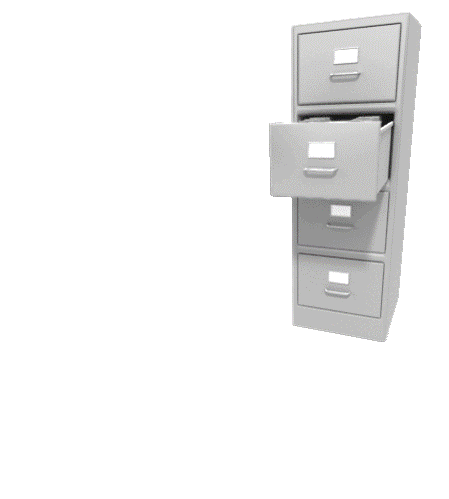Accounting for Sponsored Programs
Research Administrators Training Series
Learning Objectives
- Identify who is involved and their responsibilities
- Distinguish the types of costs incurred
- Understanding the importance of internal controls
- Introduce the federal regulatory framework
Grant Administration Post-Award
- Post-Award is the period after an award is received and accepted by the University. This includes the financial and operational management of the grant
- A “sponsored program” is any grant, cooperative agreement, or contract between the federal or state government or another sponsoring agency, and the University
- Each chart of accounts is assigned a unique account in Banner
Grant Administration Post-Award
Federal regulations & guidelines – Office of Management and Budget (OMB)
For awards issued prior to 12/26/14:
- OMB Circular A-21 - Cost Principles
- OMB Circular A-110 - Administrative requirements
- OMB Circular A-133 - Internal control and audit standards for states, local governments, non-profit organizations, and institutions of higher education
For awards issued after 12/26/14:
- 2 C.F.R. 200 titled Uniform Administrative Requirements, Cost Principles, and Audit Requirements for Federal Awards (Uniform Guidance).
Grant Administration Post-Award
- University of New Hampshire “Sponsored Programs Administration”
http://www.usnh.edu/olpm/UNH/IV.Fin/Default.html#B
- When sponsor regulations or guidelines are absent, UNH policies and procedures apply
- If regulations overlap, use the most restrictive requirements
Roles and Responsibilities
- Fiscal Responsibilities on Grant and Contract Accounts (Post Award)
- Grants and contracts are awarded to the University; not to individual investigators or departments.
- Responsibility is shared within the institution by the investigator, department chairman or institute director, dean, the BSC and the Accounting and Financial Compliance Office (AFC) in Sponsored Programs.
Grant Administration Post -Award
The Project Director/Principal Investigator (PI) has the primary responsibility to:
- Manage with care and diligence
- Understand and adhere to all terms and conditions of the award
- Document all expenditures in accordance with sponsor regulations
- Review federal and sponsor guidelines, grant agreements, UNH policies
- Comply with reporting requirements
Tests of Allowability of Costs (A-21 & Uniform Guidance)
Costs must:
- Be reasonable
- Be allocable to a specific sponsored program
- Be given consistent treatment
- Conform to laws and regulations, the terms of sponsored agreement and University policy
Direct Costs vs. Indirect Costs
- Direct Costs - Those costs which can be identified specifically with a particular sponsored project
- Indirect Costs (F&A Costs) - Those costs incurred for common or joint objectives and therefore cannot be identified readily and specifically with a particular sponsored project, instructional activity or any other institutional activity
Unallowable Costs
- Common Examples:
- Entertainment expenditures
- Individual membership dues & subscriptions
- Airfare in excess of the lowest available rates
- Alcoholic beverages
- Fines and penalties
Internal Controls for Post-Award Financial Administration
- Processes and activities that assist with accurate financial reporting and compliance with regulations.
- Proactive measures to prevent inappropriate or erroneous charges to sponsored accounts and to ensure compliance with sponsor terms and conditions.
Charging Expenses to a Grant Account
- The PI has ultimate responsibility for ensuring that all expenditures charged to the sponsored program are correct
- Approval of expenditures should go through normal university procedures
- Allowable expenses must be charged directly to the grant or cost share account, not to a departmental operating account.
Post Award
A Review of Selected Items of Cost
Employee vs. Non-Employee Status
An individual is considered an employee if:
- performs the services rendered subject to the will and control of the University (the employer)
- the University has the legal right to control both the method and the result of the services provided
- hours of work are set by the University, and a continuing relationship exists
- he/she has been paid through payroll by the University during the current calendar year
Hiring Personnel
University policies and procedures must be followed when hiring personnel on a sponsored program.
Charging Personnel
- Employees may devote a portion of their time and corresponding salary to a sponsored program or cost share.
- Administrator and clerical staff can be direct charged under certain circumstances (services provided are integral to the award, specifically identified with the activity, explicitly included in the budget or have prior written approval of the Federal agency).
- Salary amounts must be distributed based on actual effort (percentage of time spent working on a project), NOT on how much money is available in the grant budget
Charging Personnel – Key Points
- Labor Distribution is one of the most critical aspects of managing grant dollars
- Get the information you need to do it right
- Keep on top of it, make changes as soon as you know about them and monitor regularly
- Run reports and review schedules monthly or more
Additional Pay for Faculty on Sponsored Programs
- Supplemental pay
- Applicable only to faculty
- Federal grants only if following criteria is met:
- the work is for a project director in a USNH department other than the faculty member's department and the work is clearly in addition to the faculty member's regular workload;
- the work involves a separate or remote operation (e.g., a faculty member is assigned to work overseas or in some other location remote to UNH) and the work is clearly in addition to the faculty member's regular workload.
Additional Pay for Faculty on Sponsored Programs
- Summer Pay
- Applicable only to Academic Year Faculty
- Approximately 13 weeks
- Honorarium
- May not be paid from federal contracts or grants, unless the terms of the particular contract or grant expressly authorize such payment.
- Policy
- Requires approval prior to work being performed
- Supplemental pay also requires SVPR approval
Principal Investigator Transfer
Options during the term of an award
- If both institutions and the sponsor agree, the award may be transferred to the new institution
- Institution may nominate replacement P.I., subject to sponsor approval
- May subcontract portion of work to PI’s new organization
- Request termination of award
Supplies and Equipment
Ensure adequate documentation (purchase requisition, purchase order, receiving documentation, invoice) exists for non-payroll charges to the grant.
Equipment
- If the sponsor retains title to the property that is purchased with program funds, it is referred to as non-exempt property.
- Conversely, University has title to exempt property.
- It is important to be familiar with the University’s equipment policy relevant to sponsored programs.
Equipment
Controls should exist to:
- Maintain accurate records of equipment purchased with federal funds
- Physically safeguard assets purchased with federal funds
- Compensate the federal government for its share of any non-exempt property sold or converted to non-federal use.
Equipment
Controls should exist to (continued):
- Notify the UNH Fixed Asset Management Office when equipment is brought to the University by a new faculty member. This equipment needs to be tagged and accounted for.
- Notify the UNH Cost Analysis and Fixed Assets Office when equipment is moved to a new location (for example, from one lab to another lab).
Consultants
Certain elements of the relationship are important, including:
- The consultant’s work is done independently, without supervision
- Have a particular set of skills not available elsewhere in the institution
- The consultant is using his/her own facilities/equipment
- UNH staff may not serve as consultants
Employee v. Independent Contractor Determination
Subcontracts
- Definition: A third party contracted to conduct a significant portion of the scope of work or research plan included in the research proposal
- All terms and conditions in an award “flow down” to subcontractors
- UNH is ultimately responsible for both the programmatic and financial aspects of the research.
Subcontracts Monitoring & Management
- Documentation of risk assessment
- Federal regulations require that subcontractor activities be monitored
Subcontracts
Examples of the purpose of the risk assessment and monitoring:
- Identify subcontractor’s financial problems that could lead to diversion of grant funds
- Identify loss of essential personnel
- Identify loss of license or accreditation to operate a program
Subcontracts
Effective monitoring of subcontracts includes:
- Regular communication with subcontractors, including questioning progress on research;
- Monitoring subcontract invoices against original budgets; and
- Performing site visits, if necessary.
Subcontracts
- Interim financial reports from the subcontractor may indicate there is a lapse in program performance.
- A tracking system should be implemented to ensure timely submission of required invoices and technical reports.
- If there is a technical problem with a subcontractor, let SPA know as it occurs so appropriate planning can be performed.
Subcontracts
- The administrator should compare the invoices/requests for payment against the original budget. In particular, fringe benefit rate(s) and the indirect cost rate being utilized on the invoice/request for payment should be compared against the original budget.
- Items that appear inconsistent (for example, a different indirect cost rate) should be questioned and appropriate adjustments should be made.
- The mathematical accuracy of the invoice should also be verified.
Travel
- Travel expenses are reimbursable if they are reasonable and essential to the conduct of the research
- Always refer to the Notice of Award for any travel-related restrictions
- Travel Expense Report is used to request reimbursement for expenses associated with business travel.
- Advance payments (airfare, registration fees, hotel deposits) should be paid by P Card.)
Travel
- Regarding foreign travel, reimbursement will be made using the exchange rate at the time of travel.
- Use www.oanda.com or a similar translator site to assist with foreign currency translation, which allows conversion using the rate on the date of expenditure.
- Some sponsors require specific approval for all foreign travel
Travel
Examples of reasonable travel expenses:
- Air travel or mileage
- Rental charge for a non-luxury vehicle
- Taxi, tips, tolls, parking
- Lodging (not extravagant)
- Business related phone calls
Travel
Examples of unreasonable travel expenses:
- Cost of items forgotten to be packed (clothes, toiletries, incidentals like umbrellas)
- Lodging and meals for travel companion (track specific costs and only charge those related to the University employee)
- Snacks
- Meals when available at the conference (i.e., part of an overall conference fee)
- In-room movies or beverage service
- Laundry services
- Parking or driving citations
Other Direct Costs
Office Supplies:
- Generally unallowable unless the items are purchased for the sole direct technical benefit to the project (e.g., research notebooks).
- Pencils, paper, clips, memo pads, POST-IT notes are generally unallowable.
- Items classified as office supplies, that have a specific technical use on the project, should be physically separated from the general office supply items.
Other Direct Costs
Postage
- Routine correspondence costs are unallowable.
- Cost of shipment of research materials and deliverables are allowable if incurred for the sole direct benefit of the project.
Other Direct Costs
Communication costs
Generally unallowable for federal purposes:
- Local telephone cost
- Monthly use fee for equipment and local access
- Cost of pagers and fax lines
- Cost of equipment and installation of data lines
- Internet expenses
Generally allowable for federal purposes:
Other Direct Costs
Proposal Preparation Costs
- Generally, costs related to proposal preparation are not allowable on federal sponsored project unless it is for submission to a current sponsor for a non-competing renewal of an ongoing project.
Sponsor Approvals
In general, when is sponsor approval necessary?
- Change in scope or objective of the project
- Change in a key personnel
- The absence for more than 3 months, or a 25% reduction in time devoted to the project, by the approved PI
- Transfer of funds allotted for training allowances to other categories of expense
Sponsor Approvals
When is sponsor approval necessary (continued)?
- Issuing a subcontract for a substantial portion of the program’s work which causes a change in the original scope of work, or issuing a subcontract to a foreign institution, when the subcontract was not identified in the original proposal.
- Pre-award costs (more than 90 days prior to award start date)
Sponsor Approvals
When is sponsor approval necessary (continued)?
- Carryforward of unobligated balances to future periods
- If program is not under Expanded Authority, one-time extension of the expiration date (i.e., additional time to assure successful completion of the project, normally up to twelve months, without additional sponsor funding)
Sponsor Approvals
When is sponsor approval necessary (cont.)?
- If program is under Expanded Authority, sponsor approval is not required for a one-time extension of the expiration date of up to 12 months, although the sponsor must be notified that the extension is needed. Sponsor approval is needed for extensions beyond 12 months.
- Sometimes required for non-proportional cost sharing
No-Cost Extensions
- All requests for the extension of time must be adequately justified and sent to ResAdmin. If the sponsor has not delegated authorization rights to ResAdmin, the request will be sent to the sponsor.
- Requests must be made prior to the end of the current active budget period. Plan ahead and check sponsor guidelines.
- For an initial 12 month extension, justification for the extension needs to be provided.
- For extensions beyond 12 months, written requests should include the reason for the extension, the date the PI expects to complete the work, and the amount of residual funds and how they will be used during the no-cost extension period.
Program Income
Controls should exist to provide reasonable assurance that program income is correctly earned, recorded, and used in accordance with program and sponsor requirements.
Program Income
Some examples of program income include:
- Registration fees from participants for a workshop or conference sponsored by a grant
- Fees earned from services performed under the award
- Rental or usage fees for the use of computer or laboratory equipment purchased with sponsor funds
Program Income
Sponsors will require one of the following three actions:
- Additive method: Program income is added to the funds committed by the sponsor to the project, thus increasing the budget for the program/project objectives.
- Matching method: Program income is used to finance any required non-sponsor share of the project/program.
- Deduction method: Program income is used to reduce the sponsor’s originally committed funding for the project/program.
Program Income
- If a federal agency does not specify between methods:
- The additive alternative is used by default. We do set up a separate account to track the amount of program income.
- Federal and non-federal sponsors typically differ in their treatment of program income.
EFFORT REPORTING
Personnel Costs
- Personnel costs include salaries/wages and fringe benefits and associated F&A.
- Make up the largest expense category charged to grants & contracts.
Allowable Personnel Costs
- The Uniform Guidance Subpart E §200.430 contains the federal regulatory requirements for internal controls over certifying time expended on sponsored projects.
- UNH uses after-the-fact reporting system based on anticipated activities.
- Actual effort expended on each project is certified by a responsible person with suitable means of verification that the work was performed, generally the principal investigator, at the end of specified reporting periods. The effort certification should be a reasonable estimate of how time was expended.
- Uniform Guidance Section §200.430(c) states, “It is recognized that teaching, research, service, and administration are often inextricably intermingled in an academic setting. When recording salaries and wages charged to Federal awards for IHEs, a precise assessment of factors that contribute to costs is therefore not always feasible, nor is it expected."
Responsibilities
- Effort reporting is a federal compliance requirement. There are many individuals involved in this process and each one has a role in ensuring that certifications are accurate and completed on time.
Principal Investigators/Project Directors
- Understand their own as well as their staff members’ (non-faculty personnel) levels of effort committed, charged and reported on all applicable awards
- Review, initiate corrections if necessary, and electronically certify Effort
- Communicate significant effort changes to the BSC
- Review salary charges on awards on a monthly basis with BSC/business manager and identify any effort-related changes and communicate with administrators to post corrections if needed
- Recertify and electronically sign if effort changes are made after a statement has been certified
BSC/Business Manager
- Monitor effort commitments, salary charges, and cost sharing on all applicable awards
- Communicate to SPA any changes that require sponsor notification and/or approval
- Review salary charges with PI/faculty member and post any salary distribution updates and/or corrections in a timely manner
- Check effort certifications for accuracy during the review period
- Monitor that effort certifications are completed within 30 calendar days after release to the PI (due 9/30 annually)
SPA/FAST
- Communicate significant changes in effort to sponsors
- Maintain the University Effort Reporting Policy
- Provide effort reporting training, guidance on requirements, and oversee University-wide compliance with the University Effort Reporting Policy
- Manage the business/functional/technical aspects of the electronic effort reporting system
- Manage security roles/rights and provide user access to electronic effort reporting system
Cost Sharing
Cost Sharing
- All costs of a project must be classified consistently, regardless of the funding source
- Cost sharing can have a significant impact on the F&A rate, auditors and negotiators want institutions to capture all cost sharing, mandatory and committed
- Commitments made in a research proposal become a condition of the award, whether or not the cost sharing was required (mandatory)
Cost Sharing
What can be used as cost share?
- Cash expenditures
- Third party contributions
- Unrecovered F&A costs (can be used if agency has approved)
- Volunteer services: if a necessary and integral part of the project
- Other employee services
- Donated supplies (must be reasonable and at fair market value)
Cost Sharing Considerations
Cash and third party contributions must meet all the following criteria:
- Are verifiable from the recipient’s records
- Cannot be used as cost sharing on other federal projects
- Are necessary and reasonable for accomplishment of project objectives
- Are allowable under the cost principles
- Are not paid by the Federal government under another award
- Are provided for in the approved budget when required by Federal agency
Potential Problems Associated with Cost Sharing
- Can we demonstrate to the funding agency that the cost sharing commitment has been fulfilled?
- Do we track cost sharing on a project-by-project basis?
- Are we treating cost sharing consistently with other project costs, i.e., classify it as organized research?
- Are we overstating our F&A rate by not capturing cost sharing?
Cost Transfers
Federal Regulations
Any costs allocable to a particular sponsored agreement may not be shifted to other sponsored agreements in order to meet deficiencies caused by overruns or other fund considerations, to avoid restrictions imposed by law or by terms of the sponsored agreement, or for other reasons of convenience.
Cost Transfers
Purpose:
- Allow for reassignment of costs to a sponsored program from another source of funds (account)
- Written justification and approval needed for reassignment of expenses
Cost transfers are appropriate if the transfer is for:
- Correction of error
- Charges benefit more than one program (distribution of costs based on benefits received)
Cost Transfers
- Cost Transfers are not appropriate if the transfer is:
- To reduce overruns if transfer is from one federal program to another;
- For reasons of convenience
- Transfers should be processed:
- In accordance with institutional policies and procedures, inclusive with conditions cited in the award;
- In a timely manner; and
- For older transfers, high level approval sometimes required.
Other Items
Award Closeout
- 90 Days BEFORE project end date
- 45 Days AFTER the end of the project
- Ensure that all valid encumbrances are paid and any remaining balances are liquidated
- Ensure that all cost sharing expenditures are recorded and meet the required commitment
- Ensure that any overruns are removed
- 60 Days AFTER the end of project
- Ensure that any subawards are paid and properly closed out and that all required reports are received
Record Retention
- Data must be kept for 3 years following the closure of a project. Sometimes a longer retention period is required, such as with certain state grants or if there is an audit or threatened/actual litigation.
- Retention requirements apply to both scientific and financial records.
Summary
- Take a proactive approach to fund management.
- It is imperative that all parties work as a team.
- Proper fund management involves:
- Adhering to institutional and sponsor guidelines and regulations,
- Establishing a proper financial accountability structure, and
- Ensuring proper financial management with attention to the integrity of data.
Thank you.
Questions?

Next Session:
When: February 3rd
- Session I 9:00-10:15 am
- Session II 10:30-11:45 am
Where: MUB Room 338/340
What: Compliance
Knowledgeable research administrators are essential to the management of the research enterprise and play a critical role in research administration at the University.



















